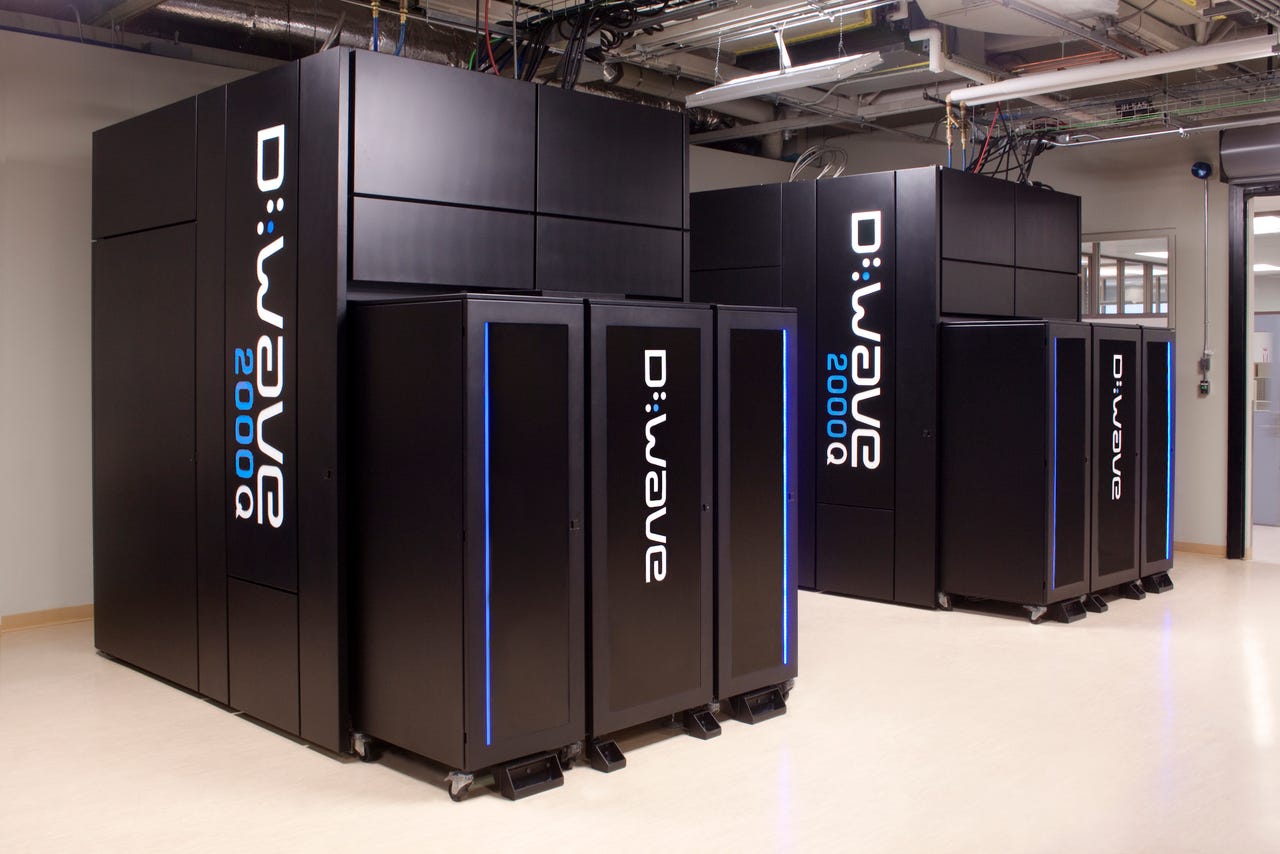The latest in quantum computing: 10ft tall, 2,000 qubits, $15m price tag


D-Wave says the speed of the new 2,000-qubit system opens up possible production applications in optimization, cybersecurity, machine learning, and sampling.
Quantum computer maker D-Wave Systems has released a new quantum processor, the 2000Q, which has double the number of qubits of its previous 1000Q system.
The 2000Q is the Canadian company's fourth quantum computer system, aimed at solving certain optimization problems through a process called quantum annealing.
Quantum computers differ from conventional computers in that quantum bits, or qubits, can achieve superposition, or a state that is both 1 and 0 simultaneously, boosting the quantum processing unit's (QPU's) problem-solving powers.
"Computation is performed by initializing the QPU into a ground state of a known problem and annealing the system toward the problem to be solved such that it remains in a low energy state throughout the process. At the end of the computation, each qubit ends up as either a 0 or 1. This final state is the optimal or near-optimal solution to the problem to be solved," explains D-Wave.
D-Wave says the new 2,000-qubit system's faster processing times open up possibilities to use it for production applications in optimization, cybersecurity, machine learning, and sampling.
The system operates at less than 15 millikelvins, which allows the chip to display quantum mechanical effects. Each unit has up to 2,048 qubits and 5,600 couplers that connect each qubit. The unit only consumes 25kW of power, according to D-Wave. Also, a new anneal in the 2000Q may be able to speed up problem solving.
As noted by Nature, some scientists are hungry for more connections between qubits, which at present is limited to one qubit talking to six others in the processor. With more connections it will be easier to use D-Wave to solve problems. The new anneal meanwhile offers more control over when different groups of qubits go through annealing.
D-Wave also announced cybersecurity firm Temporal Defense Systems as the first customer to acquire its 2000Q computer. It will be used to tackle security challenges, including secure communications, insider threats, and identifying attackers and attack patterns.
"The technology will provide the ability to identify, authorize, and authenticate at the individual device level throughout the network," James Burrell, TDS' chief technology officer, said in a statement.
"The introduction of post-quantum cryptography algorithms and the capability to solve complex computational problems achievable only using quantum computing platforms will aid in improving the security of constantly changing operational networks."
Other D-Wave customers include Google, Lockheed Martin, NASA Ames, and Los Alamos National Laboratory.
The 10-foot high 2000Q, which D-Wave says is worth $15m, is shipping to customers this quarter and is also accessible online under a subscription.
Read more about quantum computing
- Sydney Uni predicts the unpredictable in quantum computing advancement
- Microsoft's next big bet? Clue: it's just hired four top quantum computing scientists
- Quantum cloud computing could arrive in the next decade, says Bill Gates
- Everyday quantum computing is years off - so why are some firms already doing quantum encryption?